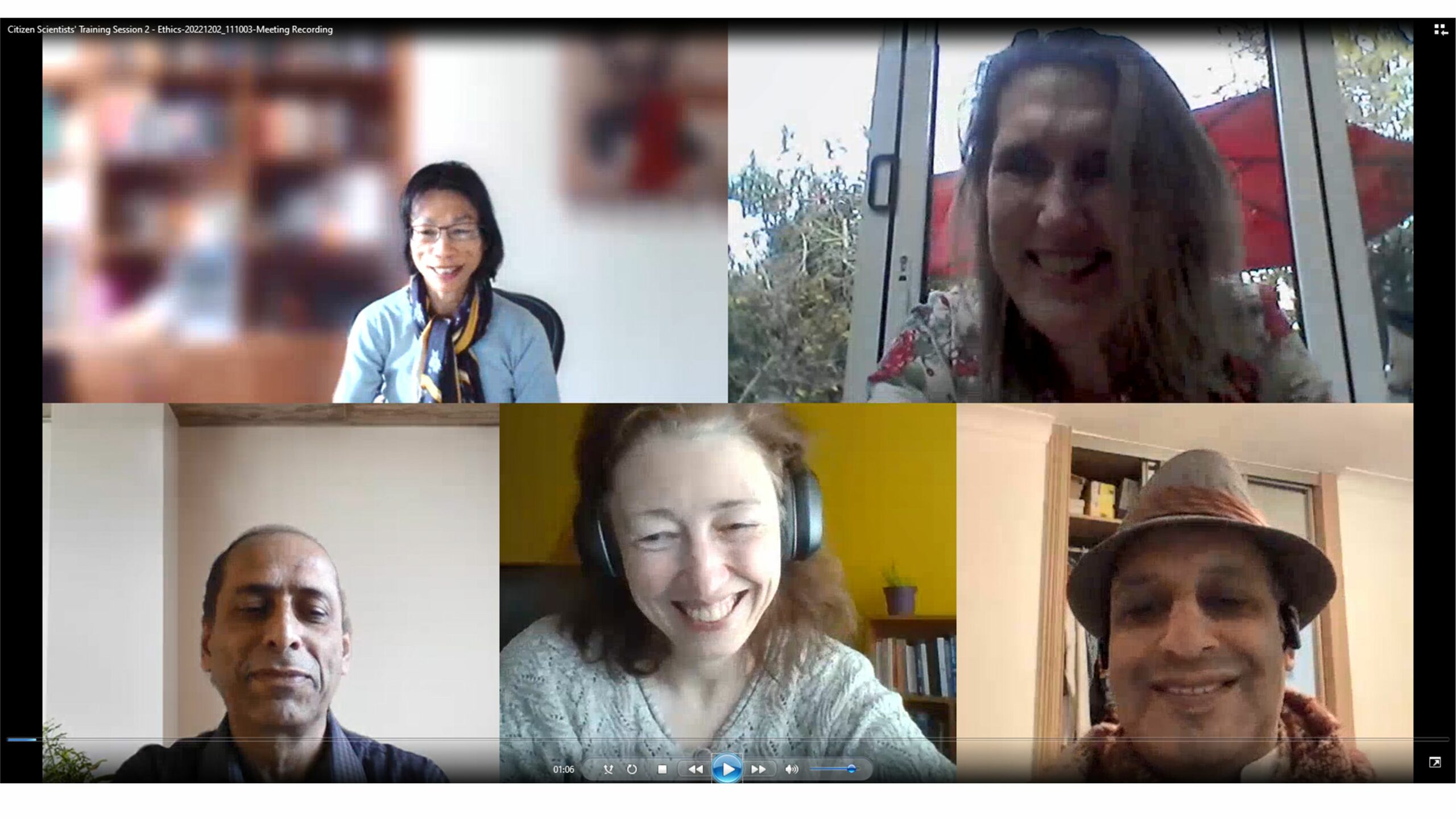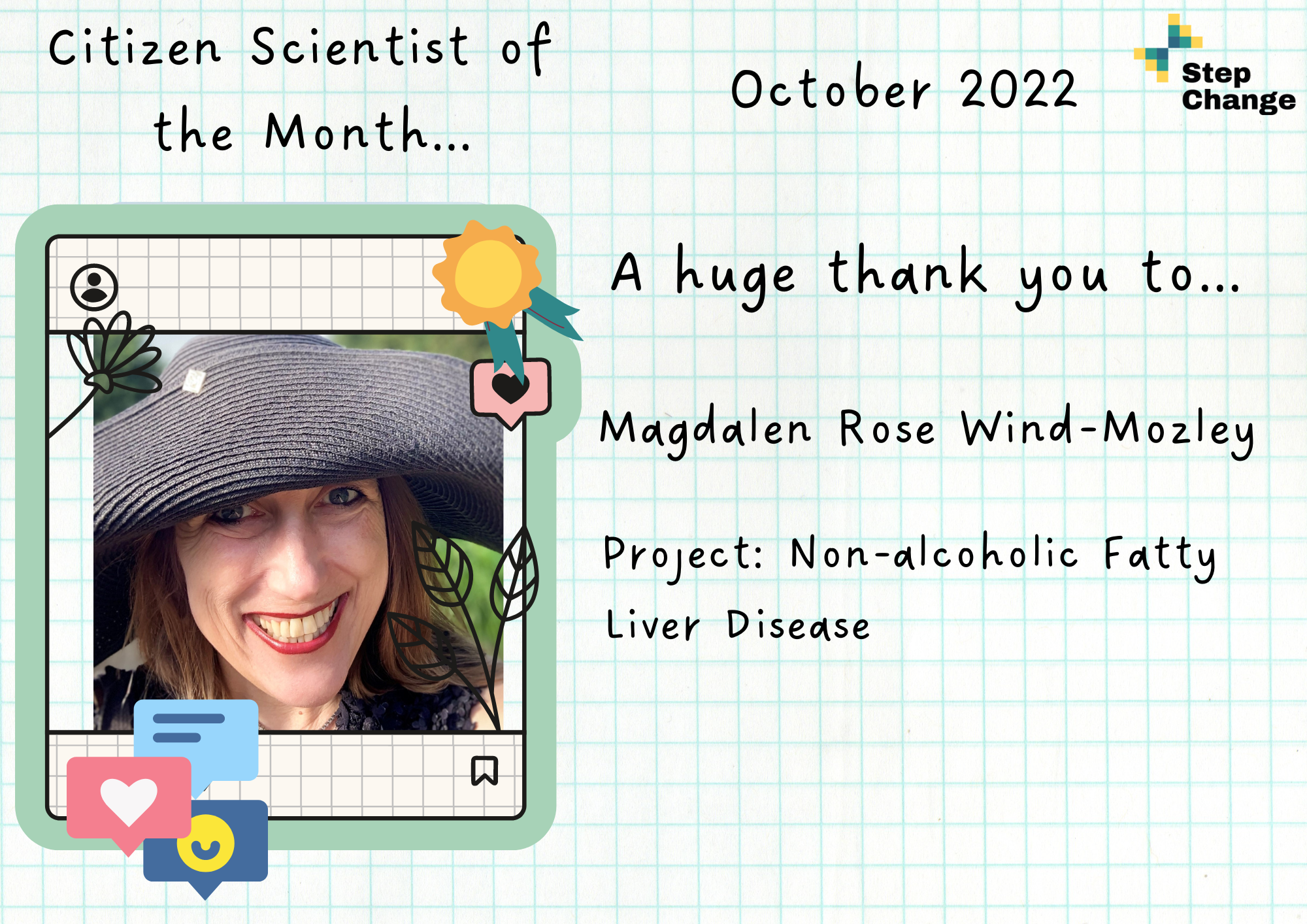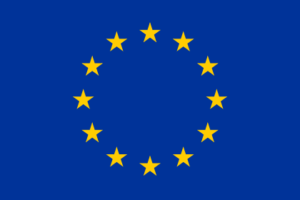Written by Magdalen Wind-Mozley, A citizen scientist working alongside our initiative on Non-alcoholic Fatty liver Disease
In December 2022 I was delighted to attend a training course on the subject of ethics in medical research, provided by Dr Sarwar Shah for the STEP CHANGE PROJECT.
As a long-time contributor of involvement work (often referred to as PPI, patient and public involvement—I prefer not to use acronyms and abbreviations) I was very interested to learn more about ethics. One motivation (apart from natural curiosity and a desire to learn) was that there have been occasions where I know that I (and others doing involvement work) have made suggestions, only for them to be overruled by “ethics”. Clearly, I am very conscious of the critical importance of an ethical approach, especially as relates to medical research; but sometimes “ethics” can seem very much a “black-box”. For those not familiar with the term: with a “black-box” you see what goes in, and see what comes out; but you’ve no idea what happens in the box:

I was hoping this training would give me a little window into the box.
A useful resource used by Dr Sarwar Shah (based at the NIHR Oxford Biomedical Research Centre) in delivering this training were the videos on ethics by Helen Kara. These I have watched, and rewatched, and I highly recommend them as they are enjoyable and also remarkably short!
Dr Kara has some messages which resonate powerfully with me: “It is unethical to bore” is a maxim worthy of being made into a cross stitch sampler. The idea of research findings being “disseminated” via handing out the write-up to rough sleepers in the form of a graphic novel is inspirational.

It was fascinating to consider the various ethical theories which we, as societies, have developed. It was useful, to me, to better understand my own ‘feelings about ethics’; and gave me the appropriate language to express these views. I can now say that my natural inclination is to reject the Euro-Western Paradigm and that I have a fairly visceral reaction to virtue ethics and deontology.
In other words, I don’t believe “good people’ always make ‘good decisions’ (and anyway I’d first want to know who exactly is deciding a person is ‘good’); and I don’t believe that simple rules like “thou shalt not kill” have wide application. We are incredibly fallible creatures, and life is complex.
I was very interested to learn more about the Indigenous Research Paradigm (though concerned by the idea that this is currently represented only by the southern hemisphere and Canada). The idea that we need to move away from the mantra of “do no harm” and move towards the demand that we must “do good” appeals to my own inherent values. In fact, it seems an obvious truth.
To use the language of the ethicists, it seems that I didn’t need an “Ethics Rupture Summit” (which is a fabulous name, so dramatic) to reach my own personal New Brunswick Declaration.
I very much enjoyed the videos. However, they did also crystallise my own concerns regarding how ethical practices are regarded and used in medical research. Coming back to my own experience: a major concern that most people doing involvement work will articulate (even without prompting, often with some passion) is that “PPI” is seen as a tick box exercise. It seems to me this is a worry which also applies to “getting ethics”. Just as involvement should be considered at every stage of the research process, so should the ethical implications.


Dr. Kara spoke of the ethical decisions being made “Behind Closed Doors”, to reference Laura Stark’s book (which is next on my reading list), and this is worrying. But what strikes me is that (much as I hugely enjoyed Dr. Kara’s talks she doesn’t mention this: I do realise this may be a function of her only being able to cover a limited number of topics) it’s not just the researchers who should be more enmeshed in the ethical decision-making process, but also patient and public representatives. Clearly, candidates for this role as representatives could be patient and public involvement contributors, citizen scientists like myself.
I am not suggesting all ‘PPI contributors’ become experts in ethics, far from it.
Instead, I feel that, instead of the current black-box system of ethical approval, it would benefit everyone if the process was clear and transparent to all. Having researchers present during the ethical discussion process would be great, having members of the public, patients, and/or participants there too (as you may have noticed, I loathe the term ‘lay person’) would be far better.
This addresses the key messages running through the presentations of Dr. Kara: that medical research must show reciprocity with the communities it draws from (not just researchers and participants: everyone).
It’s probably apparent from the above that the so-called indigenous research paradigm appeals to me greatly. The core concepts of communality of knowledge, relational accountability, reciprocity, and holism (or put more simply: research belongs to us all) are fundamental to the way I believe good involvement work should be done. In fact, this paradigm seems to apply to involvement as much as ethics.
We need to open the closed doors, and let light into the Black-box.
Note: This course was provided as part of the training (which will go on to cover key topics ranging from conducting literature reviews and data analysis to the dissemination of research findings) for my participation in the STEP CHANGE PROJECT. I am involved in a citizen science initiative investigating the impact on Non-Alcoholic Fatty Liver Disease and lifestyle and weight loss intervention, which is led by researchers affiliated with the NIHR Oxford Biomedical Research Centre in the UK. This training is hugely valuable to me and my peers as citizen scientists; both in helping us provide high-quality input into the project, but also benefiting us as individuals. In providing this training the STEP CHANGE PROJECT demonstrates its commitment to the four Rs: relationships, respect, reciprocity, and rights of all involved in scientific research.

A huge thank you to Magdalen Wind-Mozley for sharing her thoughts, and if you would like to learn more about the work Magdalen has done and her experience working with the Step Change project, Magdalen was our Citizen Scientist of the Month in October 2022!

